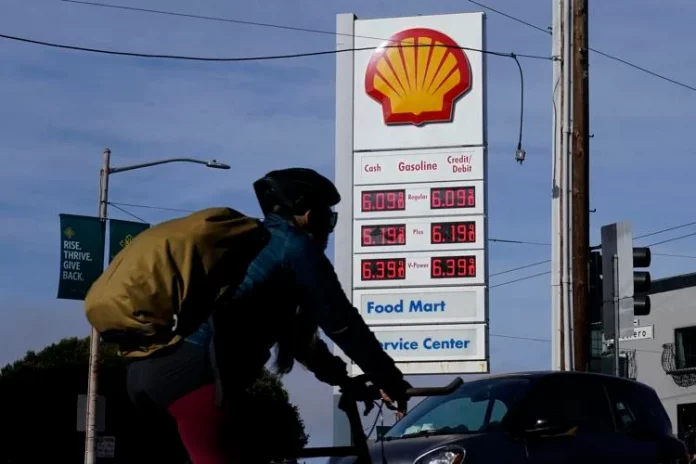
Electricity prices will rise 3.9% this summer compared to the summer of 2021, the U.S. Energy Information Administration estimates, another bill ticking higher for Americans as they grapple with record-high gas prices and inflation.
Rising energy costs have garnered national attention as gas prices hit record highs every day this week, an unusual occurrence that has economists worried about the summer.
Energy costs, though, have been rising for more than a year, and not just gas prices. The Bureau of Labor Statistics released new data this month showing that despite better prices in April, energy costs have been soaring in the past year.
“The energy index rose 30.3 percent over the last year, and the food index increased 9.4 percent, the largest 12-month increase since the period ending April 1981,” BLS said.
Critics pointed to these increases and blasted President Joe Biden’s energy policies since taking office. They also pointed out that Biden said in March that prices would decrease.
“Let’s review,” said U.S. Sen. Josh Hawley, R-Mo. “Upon taking office, Biden canceled [the]Keystone [pipeline project], halted oil and gas leases, imposed new regulations on energy production, and cut off support for fossil fuels. But [Energy Secretary Jennifer Granholm] says: no effect on gas prices.”
Energy industry analysts also said rolling blackouts may be on the horizon.
“The combination of much higher natural gas prices – 50% higher than last year, and increased electricity demand, along with continued retirements of fossil and nuclear plants, means that wholesale electric prices this summer are likely to soar,” said Jonathan Lesser, an energy expert at the Manhattan Institute. “Some of the largest power system operators, including in California and the Midwest, are also warning about possible rolling blackouts because of too little generating capacity. The result will be higher retail prices for consumers and businesses, with the latter contributing to more inflation.”
Lesser added that alternative energy sources are not yet ready to be much help.
“And don’t expect increased wind and solar generation to lower electricity prices, contrary to claims by proponents. Because of wind and solar’s inherent intermittency, they both require backup generation to be ready at a moment’s notice, which consumers and businesses will pay for,” he said.
All these issues have hit Americans hard.
A recent NBC News poll asked Americans, “Do you think that your family’s income is … going up faster than the cost of living, staying about even with the cost of living, or falling behind the cost of living?”
In response, 65% of those surveyed said they are falling behind, while 28% said they are staying about even. Meanwhile, only 6% said their income is rising faster than the cost of living.
A Rasmussen Reports poll from last month reported that surveyed Americans are more concerned about high gas prices than climate change.
“A majority of voters are concerned about rising energy costs and favor increased drilling for oil and gas, although most Democratic voters consider reducing climate change a higher priority,” Rasmussen said.
Republished with the permission of The Center Square.













